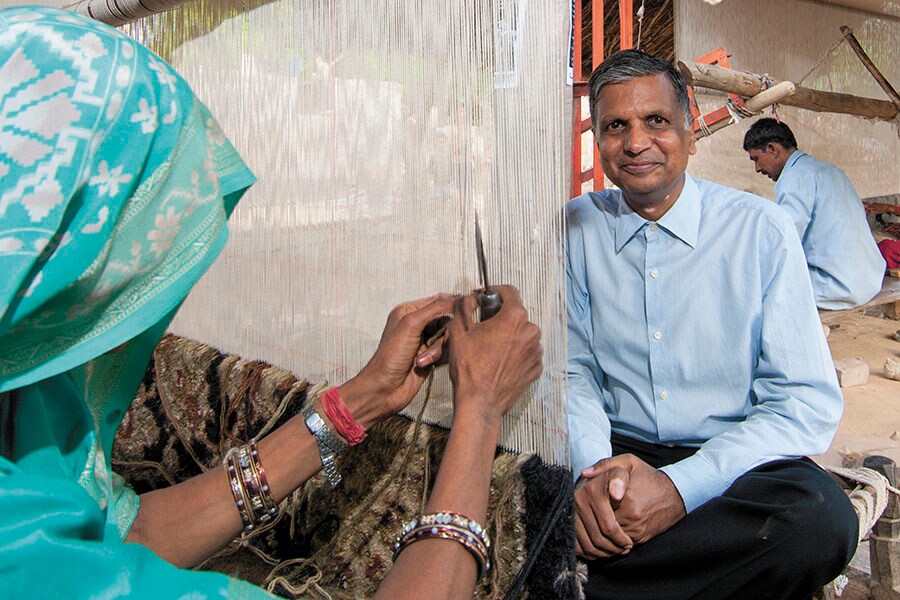Striking the millennial chord
Increasingly luxury brands have to look for ways to connect with a younger, more individualistic consumer


Harley-Davidson understands what millennials like Anushriya Gulati want and leverages its identity as one that embraces freedom
Anushriya Gulati sat on her own Harley-Davidson when she was 19 years old. It was a Street 750 which she got as a birthday gift. She rode the bike from the showroom in Chandigarh to her home in Dehradun. A couple of years later, in September 2014, she made the Kashmir-to-Kanyakumari journey along with five other Harley-Davidson riders. This wasn’t a joyride: The objective of the trip was to create awareness about “saving the girl child”. In the three years since, she has clocked 70,000 kilometres, one of the few women in India to do so.
“I think it is all about this Harley-Davidson community. You become a part of the family from day one and nobody looks at you as a woman rider or a newbie. If you have a Harley-Davidson, then you are a part of the group,” says Gulati.
Harley-Davidson entered the Indian market in 2009 as a luxury bike maker, and has leveraged its identity as one that embraces freedom. “Harley-Davidson is about personal freedom. We have appealed to broad generations over 115 years. We connect to individuals and create brand experiences which range from bike rallies, rafting and swapping stories. We are the original social media club before Facebook or Twitter,” says Peter Mackenzie, managing director, Harley-Davidson, India and China.
And therein lies the rub. Brands like Harley-Davidson have understood what customers want. Specifically, the millennials, an increasingly important segment for luxury brands. Take a recent Bain & Co report which projects that, by 2025, millennials and Generation Z will account for 45 percent of the global personal luxury goods market.
“Luxury consumption is becoming a part of the lifestyle of millennials and they do so impulsively as well. This clearly shows that any brand has to be in their visibility set at all times. What this leads to is incremental digital activations which are relevant and updated as per the latest conversations,” says Roland Folger, managing director and CEO, Mercedes-Benz India.
Because millennials think and shop differently, they present a unique set of challenges. As Claudia D’Arpizio, a Milan-based partner at Bain & Co and one of the study’s lead authors, tells Forbes, “Consuming products and brands is not just a way to say who you are but also a way to define who you are. This is why millennials are more engaged than previous generations with self-expression.” Nand Kishore Chaudhary says young buyers like an emotional pitch
Nand Kishore Chaudhary says young buyers like an emotional pitch
Image: Amit Verma
Taking a cue from this is Jaipur Rugs which markets its rugs on the ideas of compassion and humanity. Nand Kishore Chaudhary, the founder, works with 40,000 artisans of which 80 percent are women. He feels that today’s young buyer will appreciate an emotional pitch more than an aggressive one based on price. Millennials want an individuality attached to the brands they buy, he says. Jaipur Rugs connects the weavers to the buyers directly. There is a card attached to the rug that gives the identity of the weaver to the buyer who can then directly contact the weaver. This brings authenticity to the consumers’ experience and builds trust in the Jaipur Rugs brand.
The company also holds experiential workshops for the student fraternity so that they feel aligned to the movement of supporting the craft, and understand the rug’s journey from the village home to the consumers’ residence. “This empowers millennials to take conscious buying decisions in the future. We believe that rugs are ‘fashion for the house’ and thus, we allow the customers to get in touch with our weavers. It is all about empowering the customer,” says Chaudhary.
“Millennials’ equation towards spending versus saving is now skewed towards spending. The greater focus for luxury goods manufacturers is towards the millennials because they are ready to spend. These luxury brands always need to have a story to tell. Luxury needs to build a narrative and millennials need to attach to this story and only then will the brand gets its positioning,” says N Chandramouli, CEO, TRA Research, a brand analytics company.
The duality of free spiritedness and practicality in millennials keeps brands focussed on creating value and experience so that the youth can stay with the brand as they grow into middle age. “I think the millennials really know what they want and will always like to be with a brand that cares about them and tries to understand them. They feel engaged when their values, needs and interests are aligned to those with whom they deal with in every aspect of life and that includes brands,” says Ninad Tipnis, founder and principal, JTCPL Designs, an architecture firm that is known for building premium workspaces for millennials.
Manishi Sanwal, managing director, Mumbai Duty Free, the 60,000-square feet store inside Terminal T2 at Mumbai’s Chhatrapati Shivaji International Airport, has noticed that while “most customers buy luxury brands based on their high price without bothering to understand the story behind the brand or how it fits the individual style of the consumer, millennials know exactly why they are buying a particular brand”.
Like Gulati, who made her connection with Harley-Davidson very early. “Since I was three years old, I always wanted to ride. And Harley-Davidson gave me the family and the connection so that I can do this for the rest of my life,” she says.
First Published: Oct 05, 2017, 06:44
Subscribe Now